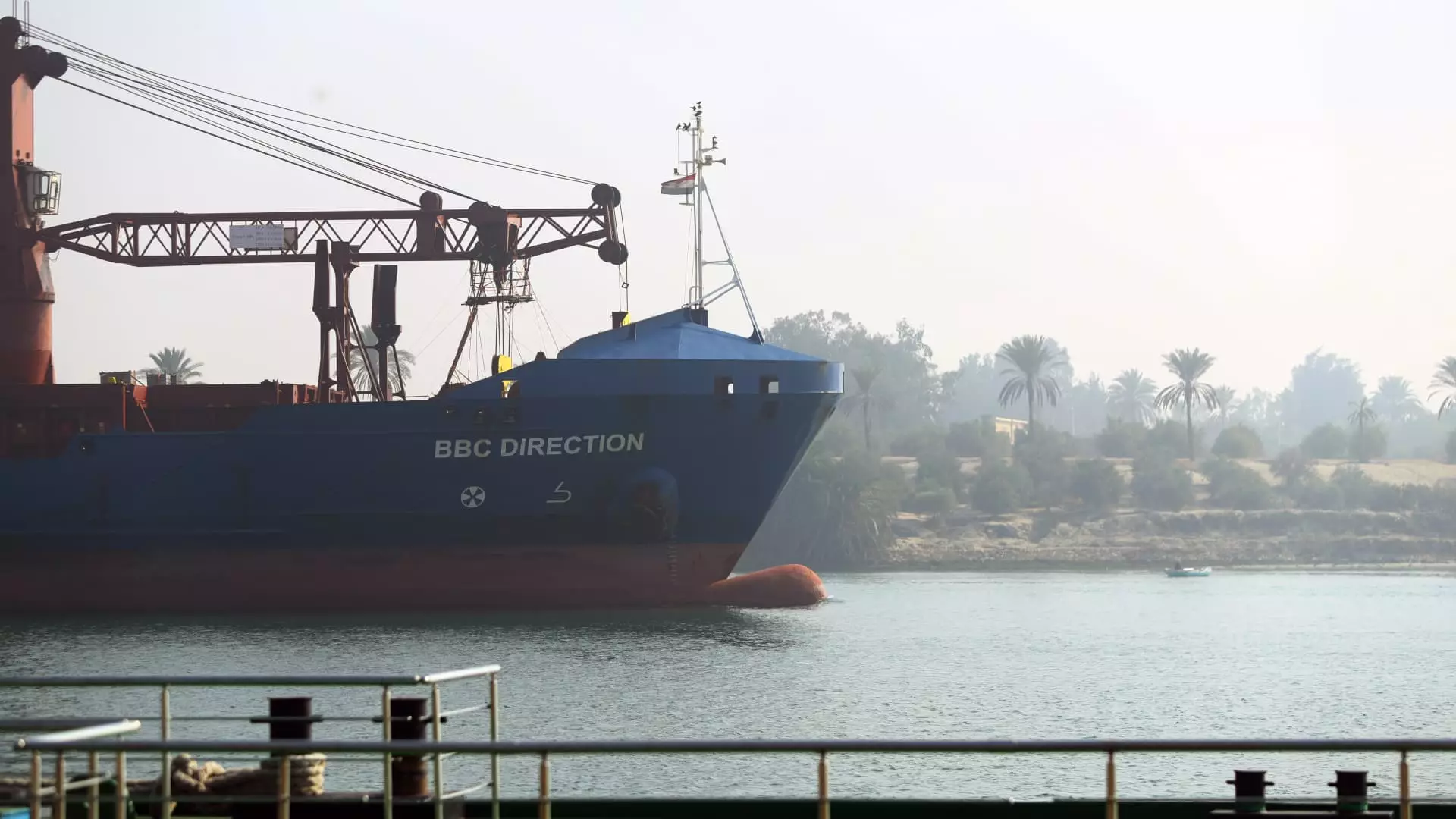In recent months, the Red Sea has become a hotspot for attacks by Iran-backed Houthi militants, posing a significant threat to global trade. These assaults on vessels have led to disruptions and potential price increases for shipments of goods and fuel. Major shipping lines and oil transporters have already suspended their services through the Red Sea due to safety concerns. However, efforts are being made by international forces to counter these attacks and protect ships in the region. This article explores the implications of these attacks on global trade and the measures being taken to safeguard maritime activities.
The attacks in the Red Sea have shaken global trade, as more than a dozen vessels have already fallen victim to these militants since the beginning of the Israel-Hamas war. Several prominent ocean carriers, including MSC, Maersk, Hapag Lloyd, CMA CGM, Yang Ming Marine Transport, and Evergreen, have diverted their scheduled journeys to ensure the safety of their seafarers and vessels. Collectively, these carriers represent around 60% of global trade. Additionally, Evergreen has temporarily ceased accepting any cargo bound for Israel, further compounding the challenges faced by importers.
Israel heavily relies on container vessels passing through the Red Sea for approximately 30% of its imports. However, with the current disruptions, voyages are being extended, causing considerable uncertainty for importers. Perishable goods with a shelf life of two to three months may not be viable for import anymore due to the longer transit times. Consequently, importers might have to increase their stock levels, leading to higher costs, while others risk losing competitiveness in their markets due to delays in time to market.
The attacks in the Red Sea have not spared the oil industry, with oil giant BP announcing a temporary pause in shipping activity through the region. As a result, other companies, such as the oil tanker group Frontline, are also avoiding the Red Sea. These disruptions have already pushed up ocean freight costs. The Asia-U.S. East Coast prices have surged by 5% since the start of the Israel-Hamas war, reaching $2,497 per 40-foot container. The situation might worsen as major companies opt to avoid the Suez Canal, which connects to the Red Sea, and choose the longer route around Africa to reach the Indian Ocean. This alternative adds up to 14 days to shipping routes and higher fuel costs, leading to a perceived vessel capacity crunch and inevitable delays in container and commodity deliveries.
Container shipping accounts for nearly a third of all global shipping, with goods amounting to approximately $1 trillion transported annually. The extended journey times caused by diversions away from the Red Sea result in the absorption of 20% of the global fleet capacity. This scenario leads to potential delays in shipping resources’ availability and returning empty containers to Asia, further adding to the existing supply chain challenges.
Insurers are also shifting their stance in response to the increased risks in the Red Sea. The Joint War Committee (JWC), which comprises syndicate members from the Lloyd’s Market Association and representatives from the London insurance market, has widened its high-risk zone to include a larger area of the Red Sea due to the missile range from Yemen. This expansion influences underwriters’ considerations for insurance premiums, ultimately resulting in potentially higher costs for shippers and consumers. Moreover, these route shifts and the uncertainty surrounding trade in the Red Sea may further impact Egypt’s struggling economy, which already suffered a blow to its tourism sector due to the Israel-Hamas war. Egypt, as the owner and operator of the Suez Canal, is likely to incur economic losses as maritime activities are diverted away from the region.
The attacks on ships in the Red Sea by Iran-backed Houthi militants have significantly disrupted global trade. Shipping lines, oil transporters, and even insurers have been forced to alter their operations to mitigate the risks and protect their assets. The implications for trade are already evident, with increased freight costs, delays, and supply chain challenges. While international forces are taking action to secure the safety of ships in the region, the long-term impact on global trade and regional economies remains uncertain.

Leave a Reply